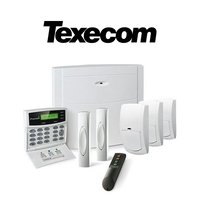Wired vs Wireless CCTV Cameras: Pros & Cons

Introduction:
Surveillance plays a huge role in today’s society. So far, monitoring systems are widely used in hotels, restaurants, retail, education, transportation, and other fields. IP cameras are an important part of commercial surveillance systems and can be used to gain visibility and insight into the business, creating a safe environment for employees and customers. In terms of protecting your business, there are many different types of CCTV to choose from.
With cameras everywhere, we experience a higher level of security in our daily lives. The proper maintenance of your video surveillance system is as important to your company’s safety as the system itself. When planning to add a video surveillance system, a basic question always arises: which infrastructure to choose as your support team? stay with us to find out the difference between Wired vs Wireless CCTV Cameras and wired and wireless networks and make the best decision.
Wired CCTV Cameras; How to work
A wired security system, also known as a DVR (digital video recorder) security system, is a combination of a camera and recording device, a more traditional form of closed-circuit television, and uses a cable to connect to the power source and the Internet.
There are two types of wired home CCTV security camera systems: the traditional DVR system uses a coaxial cable to power the camera and record the lens, and the newer NVR (Network Video Recorder), which uses an Ethernet cable to power the camera, the camera, and record video. Both DVR and NVR can use an Ethernet cable to connect to the Internet.
NVR is more advanced than DVR and can record higher-quality videos. NVR can also combine some of the functions of wireless cameras, such as two-way communication and personnel detection. The camera with a wired home security system gets its power from the DVR or NVR and does not need to be plugged into a power outlet.
The camera can be powered in two ways; through a separate cable that connects the power supply and the Internet, or through a Power-over-Ethernet (PoE) cable, which provides power and Internet connection with just one cable.
A wired solution is recommended if you are installing multiple cameras on a larger facility. It relies on a single-cable Power Over Ethernet (PoE) connection making it easy to operate multiple devices without expanding your network.
Advantages of Wired CCTV Cameras
If your Wi-Fi signal is inconsistent or unreliable, or a large property that needs to cover many areas, a wired camera is a good solution. The wireless signal does not extend very far-up to 300 feet, without walls or anything blocking the signal. The wired system will provide a more reliable signal.
Most wired systems have applications for viewing images on smartphones, but you can also connect a computer monitor to a recording device to view recordings and broadcasts in real-time. Advantages of Wired CCTV Cameras are:
-
- Little or no network interference: The greatest possible advantage provided by wired CCTV security cameras is reliability. Since cameras, video recorders, and routers are physically connected by cables, the system is less susceptible to connection problems and interference from other devices.
- More secure: Because the system operates on a closed network, it cannot be attacked over the wireless network, which ensures that the data stored on the system will be safe and protected from hackers. One thing to keep in mind here is that there is no guarantee that the system is 100% risk-free. Potential thieves and intruders can cut the cable, so the cable must be completely hidden.
- Consistent streaming and video quality: The system is insensitive to bandwidth fluctuations due to its high-reliability factor and the video quality remains excellent and consistent throughout. The 4K system will output footage in 4K quality and will not drop to 720p due to poor reception – a key factor in ensuring high-quality monitoring.
- Supports large-scale installation: If you need to monitor a large area, a wired security camera is a good choice. Since everything is wired, the system can be as spacious as needed, provide complete coverage and be able to support a large number of cameras to cover more space.
Disadvantages of Wired CCTV Cameras
The disadvantage of a wired security camera system is all these cables! Usually, you don’t need to hire a professional to install a wired security camera, but sometimes it can help. Having to lay cables throughout the house and properly connect them to your internet router can be troublesome.
The equipment cost of a wired camera system may be lower than that of a similar wireless system, but the installation cost is usually higher. This is because professional installation is likely to be required unless you can easily connect cables to the central recording device through the walls and ceiling.
The applications and software used by the wired system are generally not as advanced or user-friendly as those used by the Ring, Nest, and Arlo wireless cameras. In addition, wired cameras are not suitable for virtual assistants such as Google Assistant or Amazon Alexa, while many wireless cameras do.
You may also need to set up a computer monitor to view your recordings, and most DVRs have limited capacity and can record 7 to 14 days of recording before erasing the recording. Other disadvantages of Wired CCTV Cameras are:
- Installation time: The installation process and the time required for installation are one of the biggest disadvantages of wired CCTV security cameras. Due to the use of all cables, system setup can take longer than a wireless system.
- Intrusive installation: It may even require drilling holes in the wall, which can be a problem if the property is rented or rented.
- Not very flexible: Because wired security cameras must be connected to electrical outlets and the Internet via cables, they are less flexible and cannot be installed anywhere. The availability of energy and the internet is mandatory.
- Not portable: Portability is another problem faced by wired camera users. Since all wiring is involved in the installation process, moving or repositioning the system can be a huge challenge, and it is usually better to invest in a new one than to go through the hassle of moving an existing system.
- Power failure: Because the system relies on power supplied through your proprietary grid system, it can easily shut down during a power outage. A good way to solve this problem is to use a backup battery to make sure everything is running.
Wireless CCTV Cameras
Wireless CCTV security cameras are connected to a power source via cable and connect to the internet via Wifi, uploading video to a local storage device or the cloud. Wireless security camera systems need to be connected to a power source, so they should be near a power outlet. But unlike wired cameras, wireless cameras don’t need another wire going to your internet router, making setting them up a bit easier.
The portability of these cameras is ideal for small temporary areas, such as apartments or other rental spaces. They are also an easy first step if you want to add smart home security components to your home. Wireless connectivity can be easily added to your smart home goals because an automated system works with your complete security solution.
Advantages of Wireless CCTV Cameras
Wireless cameras are also easy to install where you need an extra digital eye, and they often come with flexible mounting options. This is especially ideal for renters. Other Advantages of Wireless CCTV Cameras are:
- Easy to install: Ease of installation is one of the main advantages of wireless security cameras, as the cables involved are minimal and usually, only one cable is needed to connect the system to the power outlet to configure the system.
- Reduced installation costs: Because the task requires less time and effort, the total cost of setting up a wireless security camera system is typically less than that of a wired system.
- More flexible: They are also more flexible in terms of installation location because they are connected via Wi-Fi and only need to be connected to a power source. However, they must be close enough to the router to maintain a good Internet connection.
- Portable: They’re also relatively easy to move around with, as they tend to be lightweight and portable
- Expandable: Because they are portable, it’s easier to add additional cameras to the system.
Disadvantages of Wireless CCTV Cameras
Although wireless technology has advanced by leaps and bounds recently, no system is 100% unbreakable. If you choose a wireless connection, you need to take extra precautions to ensure power safety.
According to the security recommendations of the U.S. Department of Homeland Security (CISA) Cyber Security and Infrastructure Security Agency, if you are running an open network, wireless cameras may present a high risk.
- Not very reliable: Anyone who has used Wi-Fi knows how unreliable it can be at times unless you have a super-fast connection that provides an uninterrupted connection.
- Depends on Wi-Fi strength: The biggest disadvantage of a wireless camera system is that it is completely dependent on the strength of your Wi-Fi connection. Any interruption or weak signal can mean that you may lose connection to the system, resulting in the loss of the film, which can be critical. The further the system is from the router, the weaker the signal and the lower the reliability. Therefore, the system must be installed within the Wi-Fi range, or an extender can be used to improve the connection.
- Vulnerable to interference: Another common disadvantage is interference from similar devices. This is a problem that wireless security camera users are very concerned about, because wireless and radio signals are everywhere around us, competing for signals, leading to false alarms or loss of signals and videos.
- Hacker risk: Like all wireless systems, wireless security cameras run the risk of being hacked, making the recorded data and related information easy for unauthorized parties to use. Special care must be taken to ensure that CCTV data remains secure, as the lack of protection of data recorded on CCTV cameras can lead to some serious legal proceedings.
- Large installation is not supported: Wireless security systems are limited to the areas they can cover. Wi-Fi signals will not be scattered too much, which limits the scale of the system. Therefore, they are not suitable for large-scale installations and are usually recommended for areas such as small houses.
Home security camera systems wired vs wireless
One of the main advantages of a home security camera system is the ability to know what is going on while you are away. Whether you want to keep an eye on your kids, pets, jewelry, or protect your home at work or on vacation, home security cameras are a great tool to monitor from a distance.
Indoor security cameras allow you to monitor what is happening in your home through real-time or recorded video. But not all cameras are created equal. Some have alarms or can send you a notification when activity is detected, some provide two-way audio, some are used to monitor your baby, and some can even serve as a complete home automation center.
The first decision you need to make is whether you need a wired or wireless home security camera system. The correct answer may depend on where you plan to place the camera and components. For example, If you have the ability to drill holes and run cables, you’ll be happy you don’t have to deal with the battery and may need to look at the wired system.
As we mentioned the advantages and disadvantages of wired vs wireless security cameras, home security camera systems also have the same qualifications. And All of those considerations should be observed and will affect the system you ultimately choose.
Differences between Wired vs Wireless CCTV Cameras
The key difference between wired and wireless CCTV security camera systems is that the images recorded in a wireless system are transmitted wirelessly from the camera to the recorder, whereas a wired system works entirely over cables. However, both require a wired power supply. So in a way, even a wireless system needs wires.
When is a wired CCTV Camera better for you?
For companies, security facilities, and any other large places that require continuous security monitoring, wired security cameras can meet all your protection needs and provide reliability, which will help companies solve any problems they may face. In addition, it can support them with insurance and police matters.
Similarly, homeowners who do not plan to move any part of their home security system can benefit from the reliability and uninterrupted connectivity of wired security cameras. If you want the most reliable connection. Wired cameras are less likely to have signal loss or recording problems caused by weak Internet connections. They are also harder to steal because they are physically connected to your home.
When is a wireless CCTV camera better for you?
If you want the flexibility and want to move your system where you need it, the wireless security camera is a great option. wireless security cameras can be easily removed and put in another room if necessary. It gives you the ability to put the camera anywhere you want.
Battery-type wireless cameras have a code that connects you to a specific location and If you decide to move your monitor to another location or plan to re-locate the entire system, then of course the ideal system would be a wireless system, which means you can do this without any damage to your property. In addition, as they are extremely easy to install, this action would not be time consuming.
Hardwired vs Wireless CCTV Cameras, which one is better
The first step in deciding whether to choose between wired vs wireless CCTV cameras is to define your requirements. Before an accurate action plan, it is necessary to clarify your needs and evaluate the current security of your property. Property size and security requirements will ultimately determine which system is the best.
In conclusion, If you need additional guidance, consulting a trusted professional can be very helpful. But notice that; When looking for a professional, this person has the skills and knowledge both on Digital and Network systems. In the short term, a trusted professional can determine the deciding factors for you to find the right camera. They can also advise on long-term maintenance and service.
Mostly, when speaking with installers, they tend to always go for wired CCTV systems, simply because it is more reliable, the quality is similar and you can have features such as face detection, deterrence, audio, and so on.
Even though wireless systems have their advantages, it is not so reliable, means you will need service every couple of years and you may miss or lose quality in some cases due to lack of signal, this is something which will never happen with a wired system.











